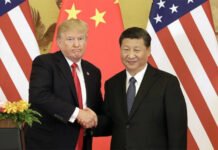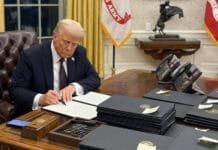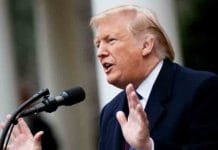New Delhi — The Indian National Congress has launched a sharp political offensive, accusing the Narendra Modi-led government of suffering a “triple blow to India’s foreign policy”, following revelations about a 35-minute phone call between Prime Minister Narendra Modi and US President Donald Trump. The opposition has demanded full parliamentary transparency, expressing concern over the gap between India’s official version of the call and the US’s narrative.
Foreign Secretary’s Briefing Sparks Firestorm
Foreign Secretary Vikram Misri, addressing the media on Wednesday, stated that PM Modi informed Trump about the ongoing Operation Sindoor against Pakistan and made it clear that the India-Pakistan ceasefire happened bilaterally, not due to any third-party mediation. He also stressed that India continues its crackdown on cross-border terrorism and has not changed its stance on international involvement in its sovereign matters.
This was immediately countered by the opposition. Congress MP Jairam Ramesh and RJD MP Manoj Jha questioned the Modi government’s credibility and demanded that the same statements made to the US be repeated in Parliament.
Congress Highlights ‘Triple Shocks’ to Indian Diplomacy
Jairam Ramesh introduced the phrase “Triple Shock” to describe what he views as three successive failures in India’s foreign diplomacy:
1. Trump Hosts Pakistan’s General Asim Munir
Ramesh highlighted that US President Trump invited Pakistani Army Chief General Asim Munir for a private lunch meeting despite his provocative remarks following the Pahalgam terror attack. According to Ramesh, India neither objected to nor acknowledged this move, which he termed a diplomatic insult.
“General Munir has been instigating conflict against India, and yet the US extended a warm welcome. Silence from our leadership is unacceptable,” Ramesh said.
2. US Praises Pakistan as Key Anti-Terror Ally
The second shock, according to Ramesh, was the statement by General Michael Kurilla, head of the US Central Command, praising Pakistan as a valuable partner in counter-terrorism.
Ramesh called the comment an outright contradiction to India’s repeated assertions that Pakistan sponsors terrorism and questioned why India hasn’t forcefully responded.
“We call Pakistan a terror exporter, and the US calls it a terror ally. Which one is true?” Ramesh asked.
3. Trump’s Repeated Claims on Mediation Role
The third major concern is Trump’s ongoing claim that he brokered the ceasefire between India and Pakistan. According to Ramesh, Trump has publicly repeated this claim over 14 times, suggesting he used trade deals as leverage to bring both nations to the table.
Ramesh asked:
“Why is the Prime Minister silent on such a serious matter? Trump is distorting facts, and yet we offer no rebuttal.”
Opposition Demands Parliament Session and Disclosure
Both Congress and RJD leaders are demanding a special session of Parliament to allow the Prime Minister to formally clarify the conversation with Trump and India’s strategic stance on Pakistan.
RJD MP Manoj Jha supported Ramesh, saying:
“We trust our Prime Minister, but now the issue has escalated. What Foreign Secretary Misri says doesn’t match the White House briefings. They sound like two different calls.”
Jha emphasized the need for unified national messaging on foreign policy:
“We must speak with one voice globally. Foreign policy isn’t about domestic headlines—it’s about global credibility.”
Parliament or Public Posturing?
The call for a special Parliament session is being seen as part of a broader political strategy by the opposition to challenge the BJP’s narrative of global strength. With national elections on the horizon, foreign policy has entered the political battlefield as opposition parties try to corner the Modi government on both transparency and performance.
Ramesh concluded:
“Let the Prime Minister say in Parliament what he told Trump. If our diplomacy is so strong, why not make it public?”
India’s Position: No to Mediation, Yes to Sovereignty
Despite the backlash, the Modi government maintains that India does not accept third-party intervention in bilateral matters. Foreign Secretary Misri reiterated that India will continue Operation Sindoor, and cross-border strikes will persist if provoked.
Misri also clarified that no trade discussions were held during the call and that the ceasefire decision came without external pressure.
What Lies Ahead: Strategic Recalibration or Political Showdown?
This escalating war of words reflects deepening political divisions over India’s global standing and diplomatic integrity. With Trump expected to visit India soon, the issue is likely to dominate headlines and possibly shape parliamentary debates, as opposition parties demand clarity and accountability.
As India walks a tightrope between national pride and international diplomacy, the Modi government faces increasing pressure to substantiate its claims, counter foreign assertions, and rebuild bipartisan trust on matters of national security.
















